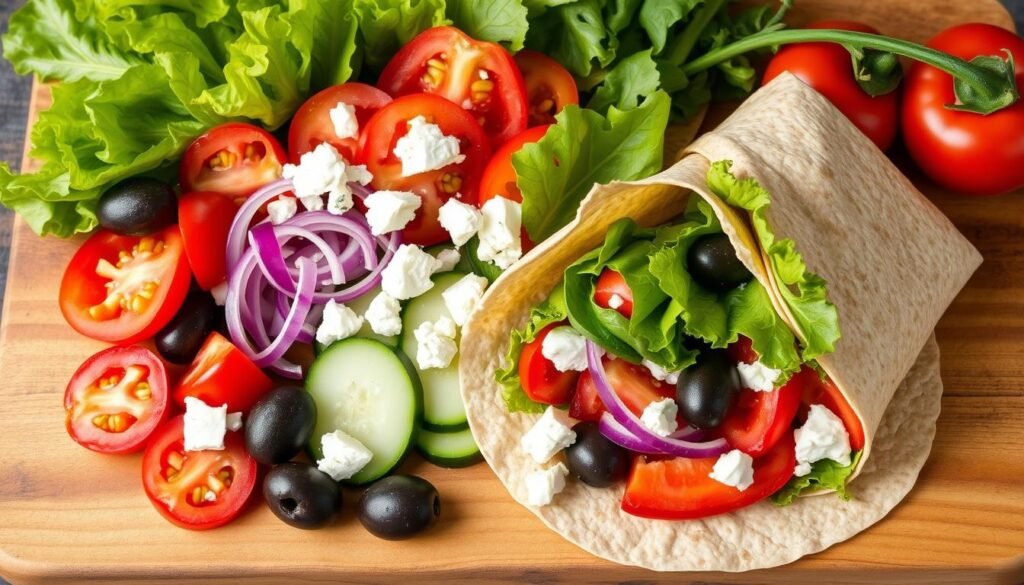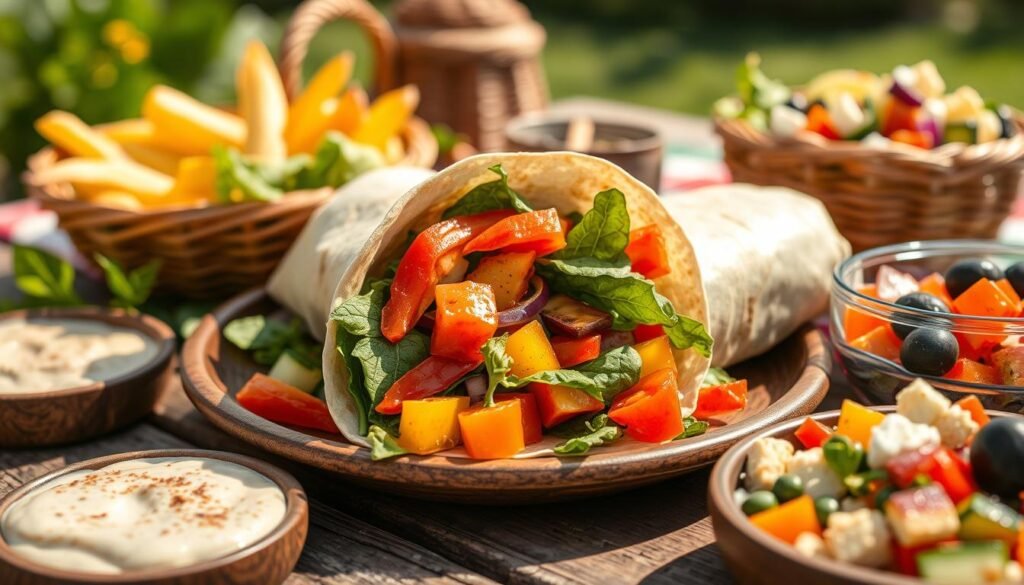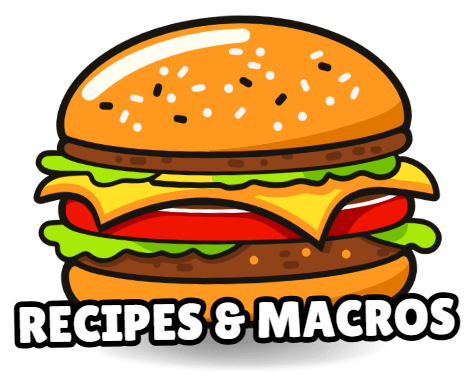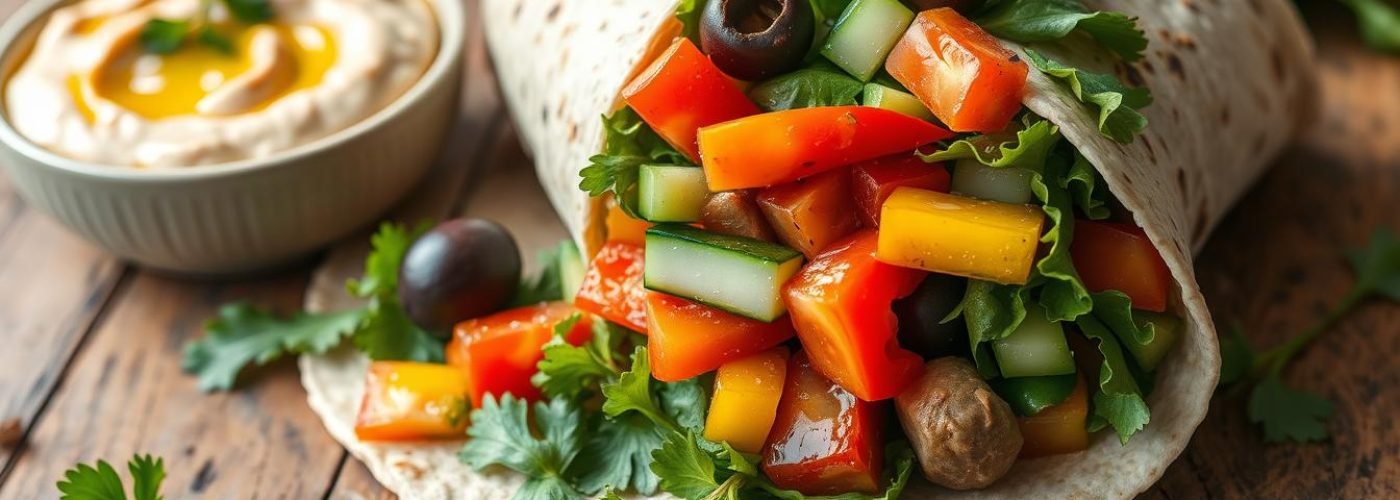The Low-Fat Mediterranean Veggie Wrap is more than just a meal; it’s a celebration of healthy wraps inspired by the principles of the Mediterranean diet. Packed with fresh vegetables and delicious flavors, this wrap serves as a fantastic option for anyone seeking nutritious and vegetarian recipes. In this article, we will explore the numerous health benefits, essential ingredients, and step-by-step instructions for creating this delightful wrap. Not only will you enjoy a tasty creation, but you’ll also make a wise nutritional decision by embracing the heart-healthy elements found in the Mediterranean diet.
Introduction to the Mediterranean Diet
The Mediterranean diet promotes a holistic approach to healthy eating, rooted in the traditional dietary patterns of countries bordering the Mediterranean Sea. This way of eating emphasizes fresh fruits and vegetables, whole grains, legumes, and nutrient-rich foods. Central to its principles is the use of healthy fats, particularly from olive oil, which serves as a primary fat source in contrast to those high in saturated fats.
Moderation plays a crucial role in this dietary framework, incorporating moderate amounts of fish, poultry, and dairy while minimizing processed foods. By aligning with these dietary principles, individuals can potentially experience numerous health benefits such as reduced risk of heart disease, enhanced brain health, and effective weight management.
Learning about the Mediterranean diet can lead to greater appreciation for meals enriched with wholesome ingredients. Incorporating dishes like the Low-Fat Mediterranean Veggie Wrap not only aligns with this diet but also supports an enjoyable way to cultivate healthy eating habits.
Health Benefits of a Low-Fat Mediterranean Veggie Wrap
A Low-Fat Mediterranean Veggie Wrap is a powerhouse of nutrition. This wrap is rich in fresh vegetables, providing a high-fiber content that supports digestive health and assists in weight control. Emphasizing a low-fat diet, it includes healthy fats such as those found in olive oil and nuts, which contribute to improved heart health while keeping calorie counts lower.
The Mediterranean benefits come through the inclusion of vibrant ingredients that are known for their antioxidant properties. These antioxidants may help reduce inflammation and oxidative stress, leading to improved overall well-being. The combination of vitamins and minerals derived from the veggies enhances nutrient absorption, making this wrap not just satisfying but beneficial for your body.
This veggie wrap is ideal for anyone seeking a healthy meal option without compromising flavor. Adding this dish to your weekly meal plan can result in significant health benefits while enjoying a delightful culinary experience.
Ingredients for Low-Fat Mediterranean Veggie Wrap
A Low-Fat Mediterranean Veggie Wrap begins with a delightful assortment of vibrant, fresh ingredients that contribute both flavor and nutrition. The essentials combine healthy vegetables and Mediterranean spices to create a meal packed with taste, texture, and health benefits. Below, discover the key components that make this wrap irresistible.
Fresh Vegetables
The core of this wrap consists of a variety of healthy vegetables. Including options like:
- Spinach
- Bell peppers (red, yellow, or green)
- Cucumbers
- Tomatoes
These vegetables add a refreshing crunch and are rich in vitamins A and C, along with potassium and dietary fiber. When selecting your wrap ingredients, aim for a colorful assortment to enhance both the visual appeal and nutrient diversity.
Herbs and Spices
To elevate the flavor profile, Mediterranean spices play a crucial role. Incorporating the following can make a significant difference:
- Oregano
- Thyme
- Basil
- Garlic powder
- Cracked black pepper
These spices not only infuse the wrap with aromatic goodness but also contribute beneficial compounds associated with health. Blending these elements in your wrap ensures a delicious experience while keeping it healthy and light.

| Ingredient | Benefits |
|---|---|
| Spinach | High in iron and antioxidants |
| Bell Peppers | Rich in vitamin C and flavor |
| Cucumbers | Low in calories, high in hydration |
| Tomatoes | Packed with lycopene and vitamins |
| Herbs and Spices | Can reduce inflammation and add flavor |
Step-by-Step Instructions to Make the Wrap
Making a delicious Low-Fat Mediterranean Veggie Wrap involves careful wrap preparation to ensure all ingredients complement each other. Following these cooking instructions will guide you through the process of creating this satisfying dish. Here are the detailed steps to help you make a wrap that bursts with flavor.
Preparation of Ingredients
Start by washing and slicing the vegetables. Chop spinach, dice cucumbers, and slice bell peppers and tomatoes into thin strips. Next, rinse and chop the fresh herbs to add a fragrant touch. Setting aside all ingredients will make the assembly process much smoother.
Assembling the Wrap
Take a large tortilla or wrap of your choice and lay it flat. Begin by layering your prepared vegetables and herbs, ensuring an even distribution across the wrap. If desired, add a light spread of hummus or yogurt for an extra layer of flavor. Carefully fold the sides of the wrap inward and roll it tightly from the bottom up. This method will keep all the ingredients securely inside while maintaining a visually appealing presentation.
Cooking Options: Grilled vs. Cold
When preparing a Low-Fat Mediterranean Veggie Wrap, two main cooking options enhance the experience: grilled wraps and cold wraps. The grilled option involves heating the wrap on a grill pan for several minutes per side, resulting in a warm, toasted finish. This method adds a delightful crunch and enhances the flavors, making every bite satisfying and enjoyable.
On the other hand, cold wraps offer a quick and convenient alternative. These wraps require no cooking, making them a fantastic choice for packed lunches or spontaneous picnics. Simply fill the wrap with fresh ingredients, roll it up, and you’re ready to go. The vibrant flavors of the fresh vegetables combined with a variety of herbs create a refreshing and wholesome meal.
Choosing between these cooking options depends on your preference and the occasion. Whether you opt for the warmth of grilled wraps or the simplicity of cold wraps, both variations promise a delicious way to enjoy this nutritious dish.
Serving Suggestions and Pairings
The Low-Fat Mediterranean Veggie Wrap offers endless possibilities for enhancing your dining experience with delightful serving ideas. Pairing this vibrant wrap with a side of Greek salad provides a refreshing crunch accompanied by tangy olives and feta. For those who appreciate a dip, tzatziki sauce complements the wrap beautifully, delivering a creamy contrast.
Consider incorporating hummus on the side, which not only adds flavor but also boosts protein content. A light soup like lentil or vegetable broth can make for a satisfying combination, transforming the meal into a hearty feast.
For a broader Mediterranean-themed dining experience, think about incorporating:
- Assorted olives for a salty kick
- Crumbled feta cheese to elevate the taste
- Whole grains such as quinoa or farro for added nutrition
These wrap pairings elevate the low-fat veggie delight into a complete meal, ensuring it aligns with your goals for healthy meals while keeping the palate entertained.

| Pairing Item | Flavor Profile | Nutritional Benefits |
|---|---|---|
| Greek Salad | Fresh, Tangy | Vitamins A, C, and antioxidants |
| Tzatziki Sauce | Creamy, Cool | Probiotics and calcium |
| Hummus | Nutty, Smooth | Protein and fiber |
| Lentil Soup | Hearty, Earthy | Iron and fiber |
| Olives | Salty, Savory | Healthy fats and antioxidants |
| Quinoa | Nutty, Mild | Complete protein and fiber |
Macronutrient and Caloric Breakdown
The Low-Fat Mediterranean Veggie Wrap offers a balanced combination of macronutrients, making it an excellent dietary choice. Conducting a thorough dietary analysis reveals that this wrap’s calorie content remains within a healthy range, typically around 200-250 calories per serving. This makes it a satisfying option while keeping caloric intake in check.
Low-Fat and Low-Carb Highlights
This wrap features a low-fat profile, containing approximately 7-10 grams of healthy fats, primarily derived from avocado and olive oil. The inclusion of protein, around 12-15 grams per serving, is especially beneficial if the wrap incorporates beans or legumes. Fiber content stands at 5-7 grams, contributing to its nutritional density and making it a filling meal option without excessive calorie content.
| Nutrient | Amount per Serving |
|---|---|
| Calories | 200-250 |
| Fat | 7-10g |
| Protein | 12-15g |
| Fiber | 5-7g |
Expert Tips for the Perfect Wrap
Creating the perfect wrap involves a few essential wrapping techniques that ensure a delightful and mess-free experience. Start by not overloading your ingredients; this prevents spillage when rolling. Aim for a balanced filling for the ideal taste and texture.
Using a damp towel to warm the wrap slightly can make it more pliable. This simple trick reduces the risk of tearing, allowing for a more seamless roll. When it comes to flavor, experimenting with different whole grain wraps enhances the overall experience.
Consider adding a light spread of hummus or a similar spread. This not only increases flavor but also adds moisture without contributing excess fat. These expert tips will guide you in crafting a delicious and satisfying Mediterranean veggie wrap.
| Tip | Description |
|---|---|
| Don’t Overload | Keep ingredients balanced to avoid spillage while rolling. |
| Warm the Wrap | Use a damp towel to warm the wrap, making it more pliable. |
| Choose Whole Grains | Experiment with various whole grain wraps for enhanced flavor. |
| Spread Lightly | Add a light spread of hummus for added moisture and taste. |
Variations of the Low-Fat Mediterranean Veggie Wrap
One of the most enjoyable aspects of creating a low-fat Mediterranean veggie wrap is the endless possibilities for customization. Wrap variations can be as simple or complex as you desire, allowing you to swap out different vegetables based on what’s fresh and in season. For instance, you might use ripe tomatoes in the summer and switch to roasted butternut squash in the fall. This flexibility encourages recipe adaptations that can suit your taste preferences and even inspire seasonal meals.
To elevate the nutritional profile of your wrap, consider adding protein sources. Options like chickpeas, grilled chicken, or crumbled low-fat feta cheese not only offer extra health benefits but also contribute to a more satisfying meal. If you’re targeting a bit of spice to enliven your dish, tossing in jalapeños or a spicy vinaigrette can add an exciting kick that transforms your creation. These small changes exemplify how customization can turn a simple wrap into a personalized culinary experience.
Lastly, for those with dietary restrictions, gluten-free wraps are readily available, making it easy to enjoy this Mediterranean favorite without worry. You can experiment with different grain options, such as quinoa or brown rice, for the base of your filling, ensuring that everyone can partake in the deliciousness. Embracing these wrap variations ensures that your low-fat Mediterranean veggie wrap remains a vibrant and adaptable dish in your meal repertoire.

